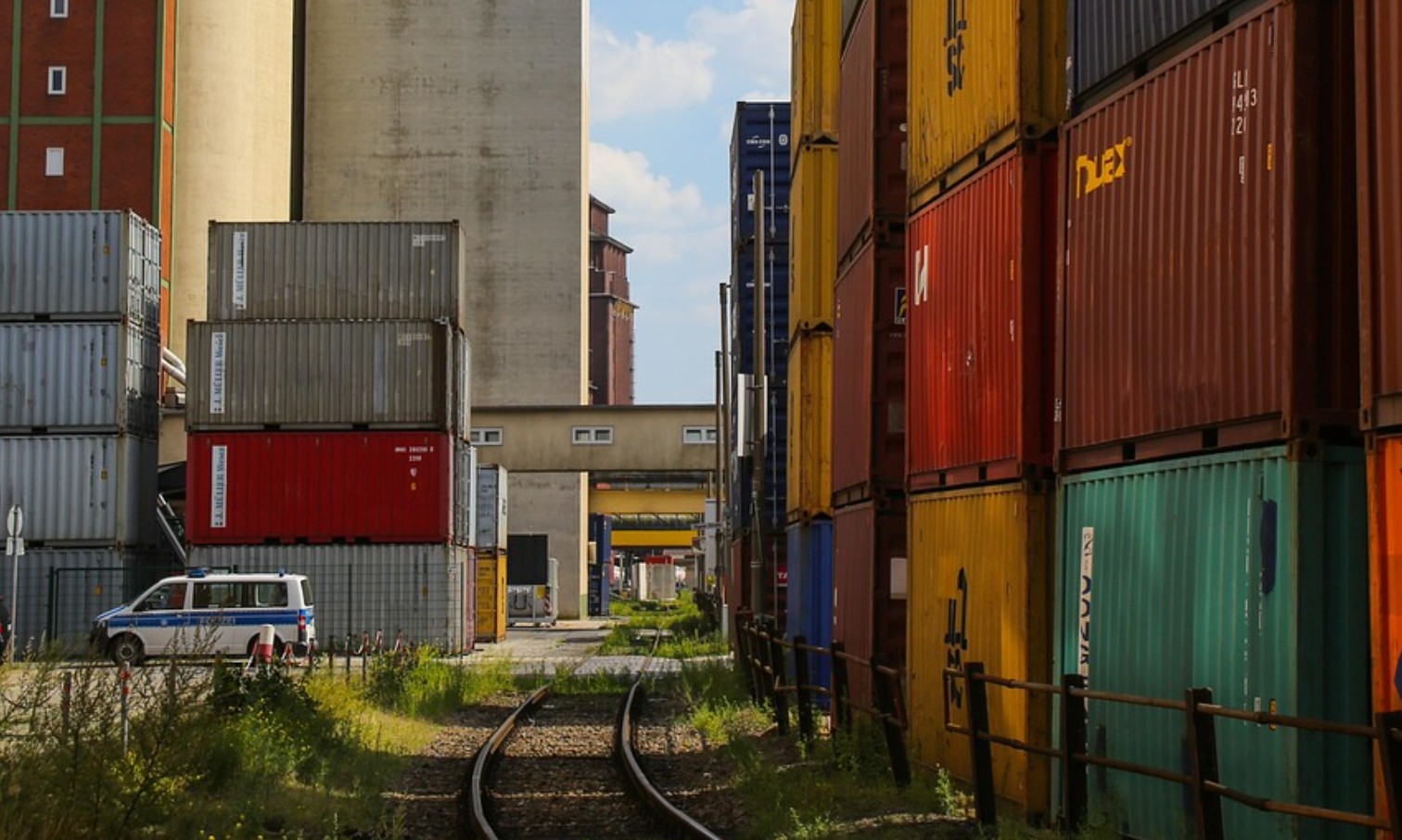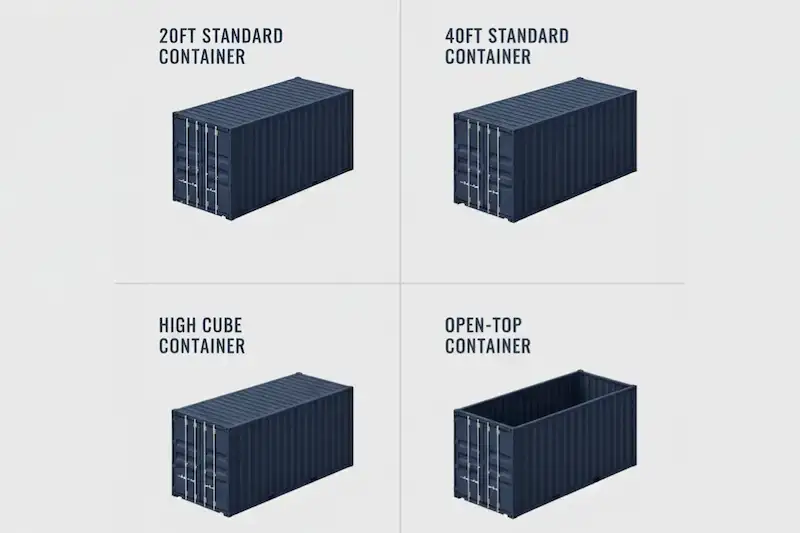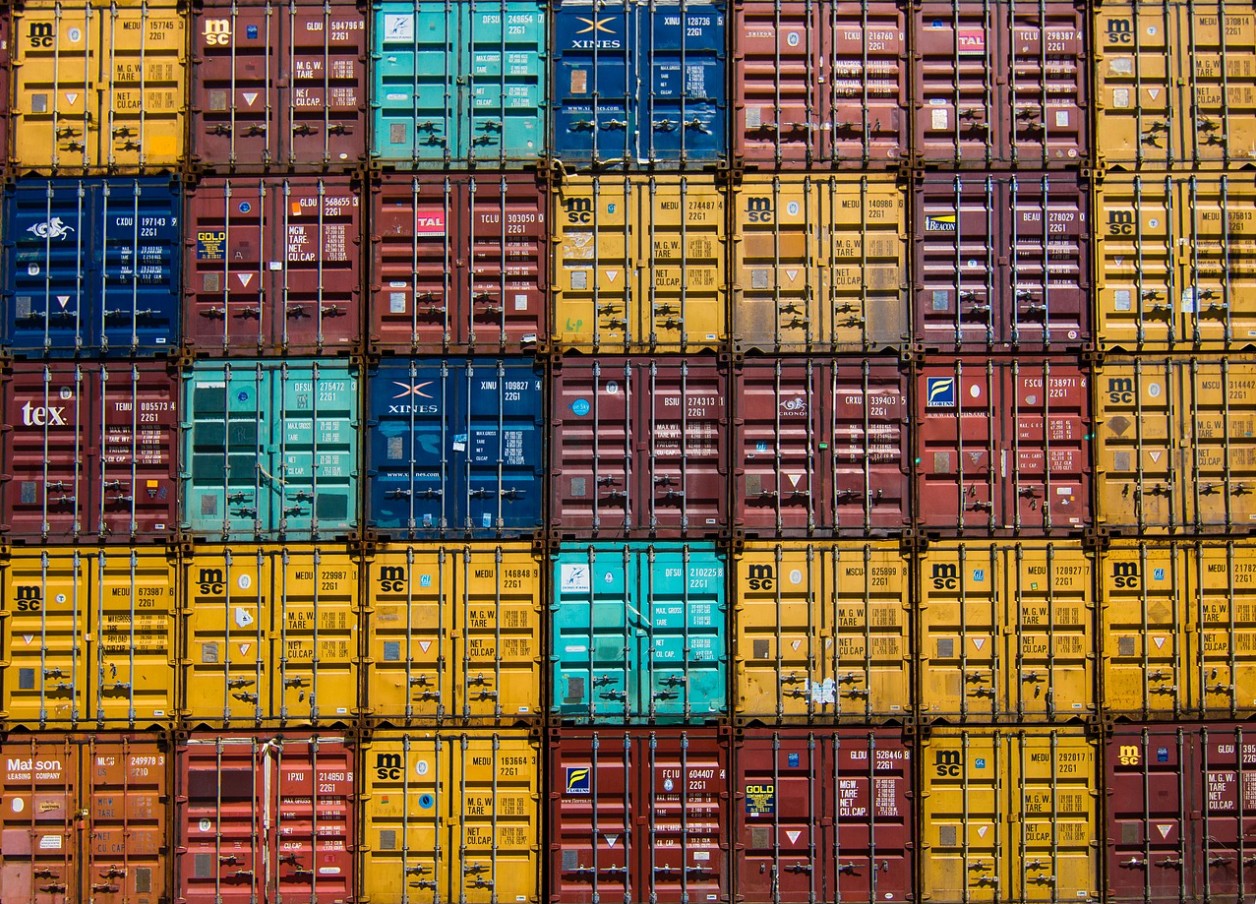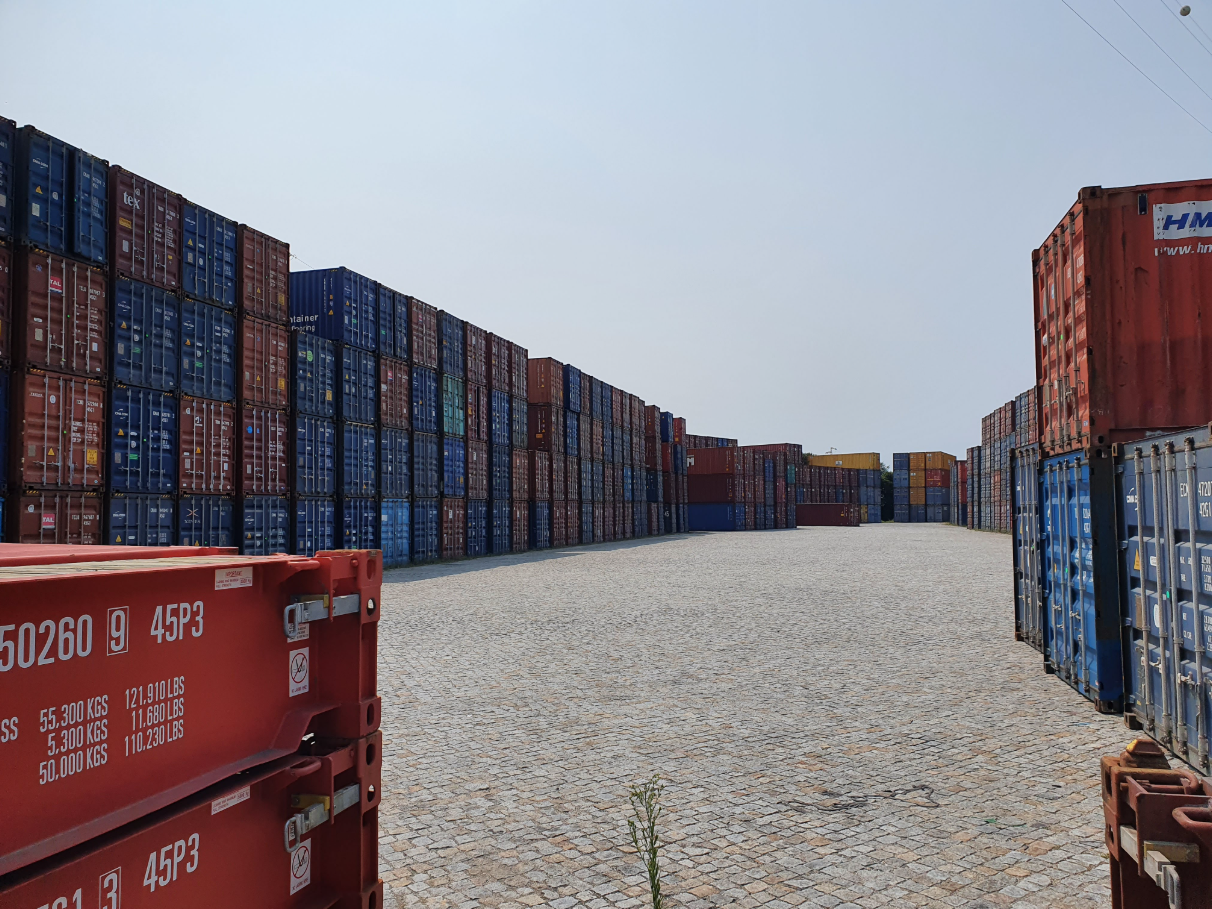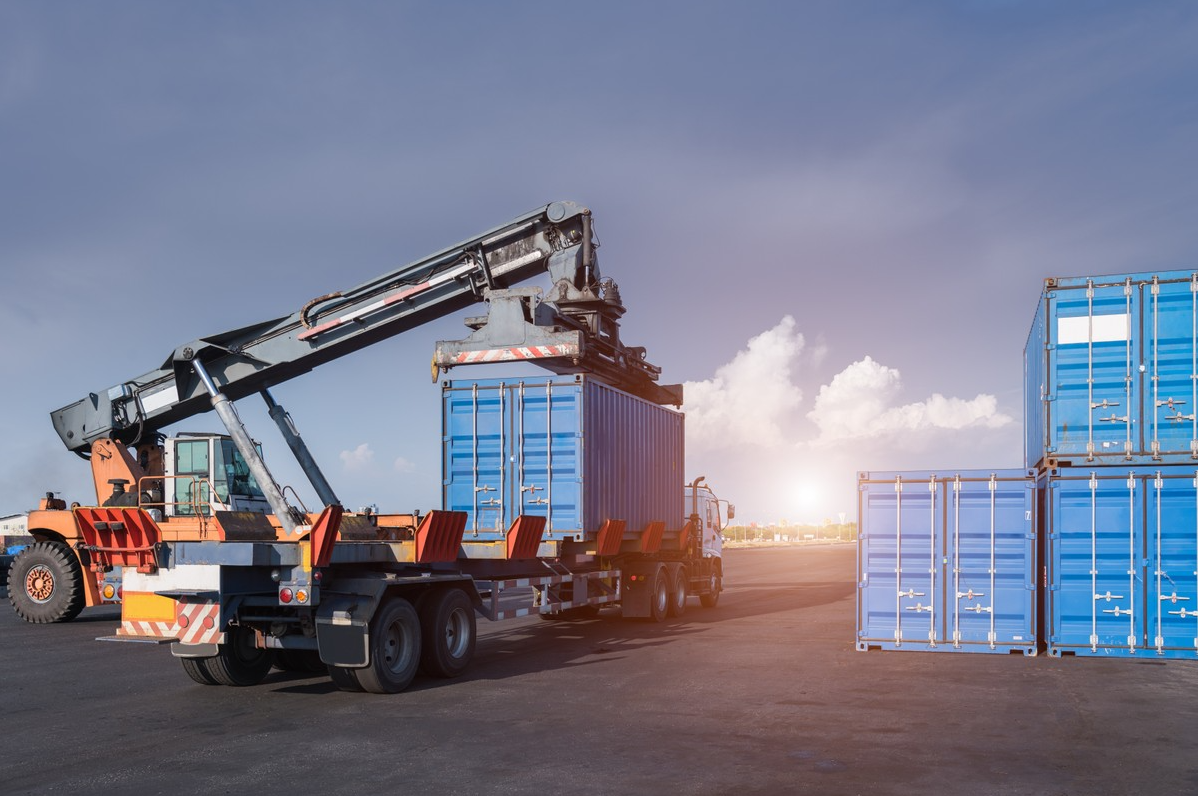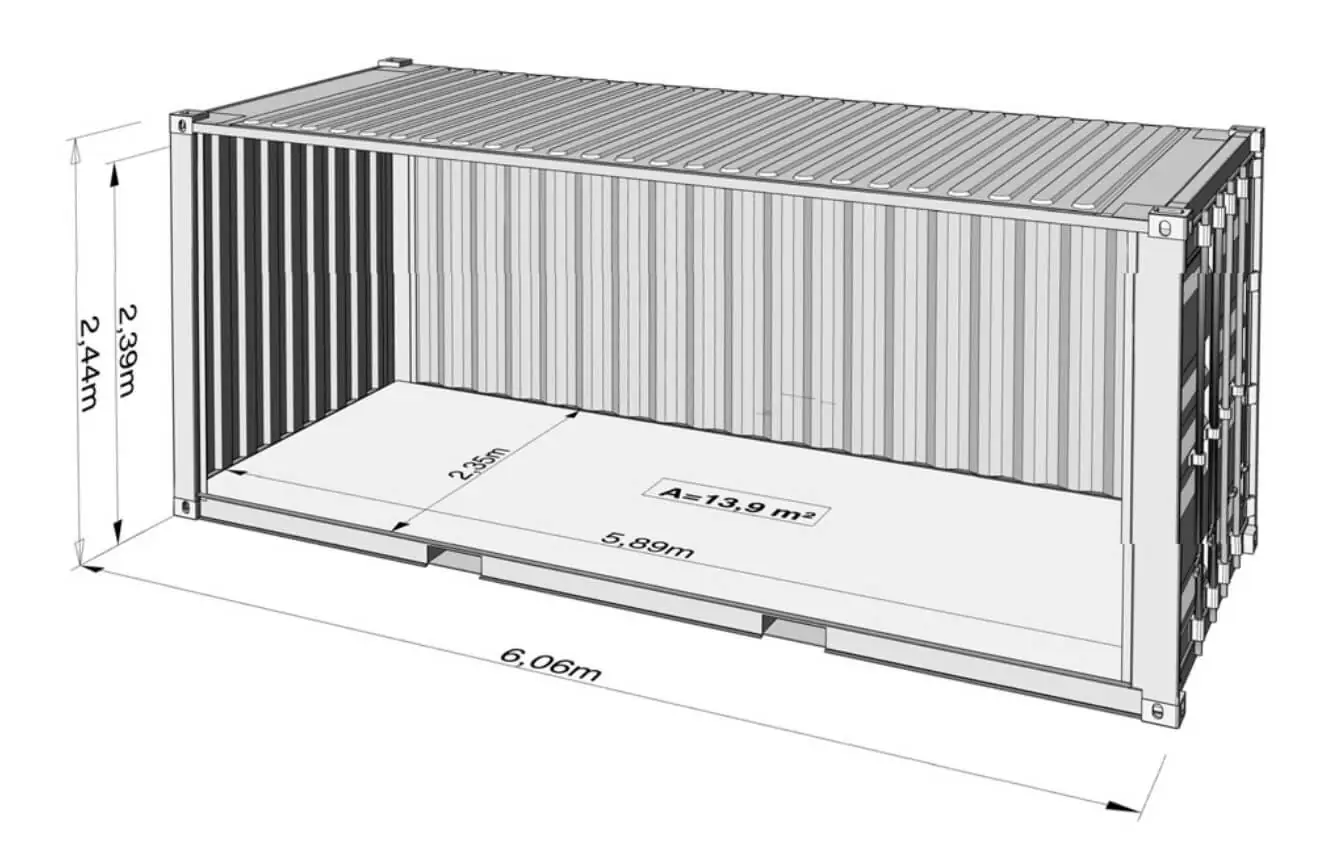6 tips to best use shipping containers as storage units [2026]

Learn how to best use shipping containers as storage units. Explore 6 essential tips for choosing, site leveling, and maintenance to protect your cargo.
Whether you are looking to clear out household clutter, store construction tools, or manage retail inventory, a steel intermodal container offers a weather-resistant “drop-and-go” warehouse.
However, simply placing the container on the grass isn’t enough to protect your valuables from moisture, rust, or local zoning fines.
In this guide, we’ve condensed our years of industry experience into the essential steps for successful container storage. You will learn how to choose between new and used units, how to prepare your site for a seamless delivery, and why the right foundation is the secret to a container that lasts for decades.
Key takeaways
Shipping containers are highly effective storage units as they are weather-resistant, versatile, and cost-efficient. Some tips to prepare your site for shipping container storage:
- Prioritize level ground: Always place your container on a level foundation, such as gravel or a concrete pad, to keep the doors aligned and prevent structural stress.
- Check local rules: Contact your city or HOA first to confirm if you need a temporary or permanent placement permit.
- Select the right container condition: Choose a “One-Trip” (new) unit for sensitive household items or a “Wind and Water Tight” (used) unit for rugged outdoor tools.
- Choose the container size: A 20ft container fits most 1-2 bedroom homes, while a 40ft high cube offers the best value for stacking bulky machinery or palletized inventory.
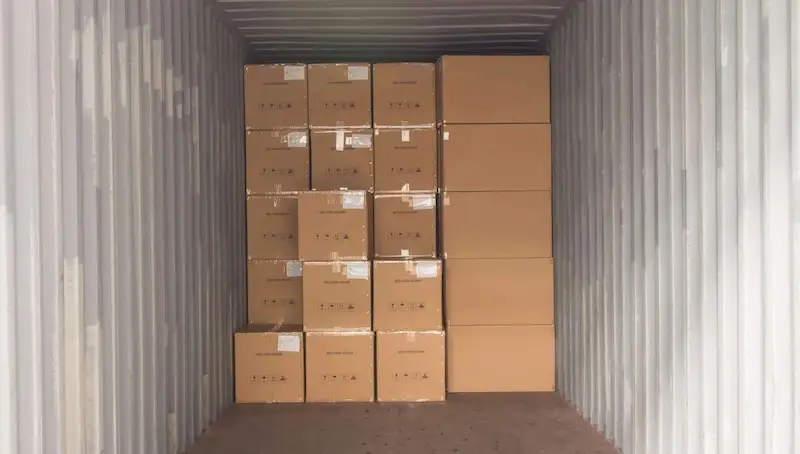
6 Expert Tips for Shipping Container Storage
Here are 6 tips from our experts to help you get your containers ready for storage.
Storage Tip №1: How do I prepare for shipping container delivery?
To prepare for container delivery, make sure you have a clear, flat access route and a level site that is at least twice the length of the container.
Before your unit arrives, consider the following logistics:
- Access clearance: Since most containers are delivered via tilt-bed trucks, you need roughly 60ft of straight-line clearance for a 20ft container and 100ft for a 40ft unit.
- Ground stability: The delivery site must be firm enough to support the weight of the truck (up to 45,000 lbs) without sinking.
When you buy containers from a certified supplier like Pelican Containers, delivery is handled for you. Our team reviews your site details in advance and recommends the right delivery method based on access and clearance.
In most cases, containers are delivered using a tilt-bed truck, which gently places the unit directly on the ground. But depending on your location, we may also use a crane or flatbed.
Before delivery day, we confirm road access, a turning room, and the exact drop-off location. If delivery isn’t needed, you also have the option to pick up your container from one of our depots.
Every container from Pelican arrives fully built, sealed, and ready to use. Explore our container catalog to buy your storage container at the best prices today.
Storage Tip №2: Do I need a permit for a storage container?
Permit requirements for shipping containers vary by zip code, but most residential areas require a temporary placement permit or a land-use permit.
To avoid legal issues or fines:
- Check local zoning laws: Contact your local building department to see if containers are classified as “temporary structures.” If they are, you may only be able to keep the container on your property for 30–90 days. If containers are classified as a “Permanent Structure,” you will likely need to follow strict zoning laws, which may include specific foundation requirements.
- HOA rules: If you live in a managed community, check your Homeowners Association bylaws, as many have strict rules against steel structures on driveways.
By obtaining all required permits and approvals beforehand, you can avoid any legal issues or complications in the future.
Storage Tip №3: Should I buy a new or used container for storage?
The choice between new and used containers depends on your budget and what you are storing; “One-Trip” (new) containers are best for sensitive goods, while “Cargo Worthy” (used) units are ideal for industrial tools.
A new shipping container may be expensive, but it offers impeccable condition as it’s devoid of prior wear and free from residual scents of past cargo.
On the other hand, a used container in cargo-worthy or WWT conditions may have some issues like rust, dents, or lingering smells, but they’re perfectly suited for storage and are quite affordable.
Get in touch with our experts to explore the best container storage options for you.
Storage Tip №4: What is the best shipping container size for storage?
The most common storage sizes are 20ft and 40ft units, with high cube models providing an extra foot of vertical space for bulky items. The container size you choose should be large enough to comfortably fit all your belongings without overcrowding or leaving unused space.
| Pro tip: Read the detailed guide on shipping container types and sizes to find the best option for you. |
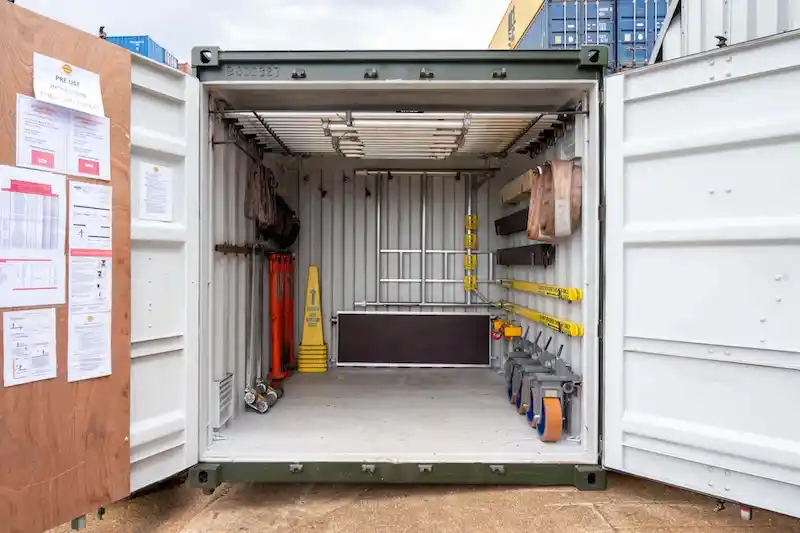
Storage Tip №5: Buy a quality container
Regardless of whether you’re buying a new or used shipping container, you should always check the quality before making a purchase.
To ensure a container is high-quality, perform a “light test” by stepping inside and closing the doors; if you see any light peeking through, the unit is not water-tight, and the elements like water and water may damage the goods inside.
Some other factors to consider include:
- Door gaskets: Ensure the rubber seals are flexible and intact to prevent moisture ingress.
- Locking bars: They should move freely without excessive force.
- Floor condition: Check the marine-grade plywood floor for soft spots or chemical staining.
Investing in a good-quality container can preclude the need for potential repair or replacement costs in the future.
Storage Tip №6: What is the best foundation for a shipping container?
A shipping container needs a solid, level base to perform well as a storage unit. Common foundation options include concrete pads, compacted gravel, or railroad ties placed at load-bearing points. The key is to keep the container elevated, level, and well-supported on stable ground.
Without proper support, the container can shift over time, which may cause door alignment issues and structural stress. A good foundation helps prevent moisture from collecting underneath the container. This reduces the risk of rust, corrosion, and long-term damage to the steel floor and frame.
Keeping all the tips we’ve discussed above is a great start to using shipping containers as storage units. But having the right partner to help with sizing and delivery makes all the difference.
At Pelican Containers, we simplify this process by offering a curated selection of certified new and used units delivered straight to your prepared site. Read on to know more.
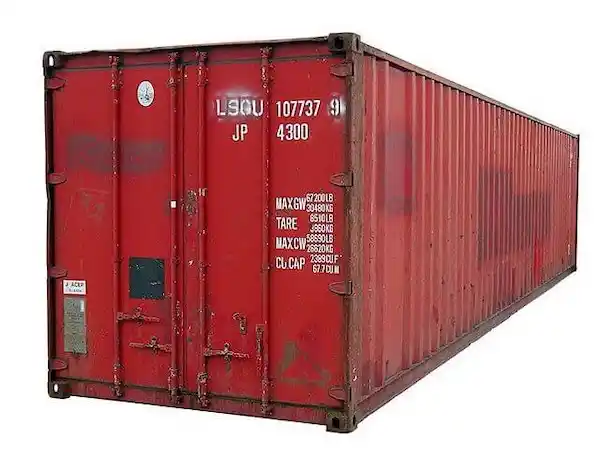
Buy storage shipping containers from Pelican at the best prices
Pelican Containers provides a seamless experience for buying high-quality new and used shipping containers at competitive market rates.
Whether you need a single 20ft unit for residential storage or a fleet of 40ft high cubes for industrial inventory, we handle the logistics so you can focus on your project.
Every container in our inventory is inspected, ensuring your valuables remain protected for years.
Why choose Pelican Containers?
- Global inventory: With depots across the US, Canada, UAE, and India, we provide fast, regional delivery that minimizes your shipping costs.
- Certified quality assurance: We are proud members of the National Portable Storage Association (NPSA) and the BBB, maintaining an A+ rating for transparency and service.
- No-hassle delivery: Our fleet of tilt-bed and crane-equipped trucks can place your container exactly where you need it, even in tight or challenging locations.
- Transparent pricing: No hidden fees or high-pressure sales. Get a direct, no-obligation quote within 24 hours (or as fast as 1 hour during business days).
Ready to find your perfect storage unit?
Explore our container catalog or request a free quote today.
Shipping Containers: The Ultimate Drop-and-Go
Warehouse: Need a secure space for your tools, inventory, or household goods? Watch how a steel shipping container transforms into the perfect weather-resistant storage unit.
Vanessa is a dedicated writer and content enthusiast at Pelican Containers. With a background in practical writing and a keen eye for clarity, she transforms complex container topics into easy-to-understand and useful content. Her passion lies in exploring the evolving world of container usage — from smart storage hacks to global logistics trends.
When she's not writing, Vanessa loves discovering creative shipping container projects or traveling to find new inspiration.
Explore thoughtful, informative, and accessible content with Vanessa!
Vanessa is a dedicated writer and content enthusiast at Pelican Containers. With a background in practical writing and a keen eye for clarity, she transforms complex container topics into easy-to-understand and useful content. Her passion lies in exploring the evolving world of container usage — from smart storage hacks to global logistics trends.
When she's not writing, Vanessa loves discovering creative shipping container projects or traveling to find new inspiration.
Explore thoughtful, informative, and accessible content with Vanessa!
Frequently Asked Questions (FAQs)
Can you use shipping containers for storage
Yes, shipping containers are among the most secure and durable options for on-site storage due to their heavy-duty Corten steel construction. They are designed to be “Wind and Water Tight” (WWT), protecting contents from rain, snow, and pests. Because they are portable and require no permanent foundation, they are a popular choice for construction sites, retail inventory, and residential furniture storage.
What is the difference between a storage unit and a shipping container?
The main difference is that a shipping container is a portable, steel structure kept on your own property, while a storage unit is a fixed space located within a third-party rental facility. Shipping containers offer 24/7 access and no monthly rental contracts if owned, whereas traditional storage units provide a climate-controlled environment but require monthly fees and travel time to the facility.
Are shipping containers good for storage?
Yes, shipping containers are excellent storage units because they are weather-resistant, versatile, and cost-efficient. But the key is to adopt shipping containers based on your specific storage needs.
What are the cons of using a shipping container for storage?
The primary disadvantages of shipping container storage include the potential for internal condensation, the need for significant delivery space, and strict local zoning permits. But the right container supplier, like Pelican Containers, will handle these issues and advise you on the best container storage options.
Which shipping container is best for storing cargo?
A new 20ft shipping container is generally considered the best all-around option for high-value cargo because it is pristine, odor-free, and easy to maneuver. However, if you are storing large machinery or palletized inventory, a 40ft High Cube (HC) is better, as it provides an extra foot of vertical headspace (9’6” total) for stacking goods or operating a small forklift inside.
Does a shipping container need a foundation?
Yes, a shipping container requires a level foundation such as a gravel bed, concrete pads, or railroad ties to prevent the frame from warping and the doors from jamming. Placing a container directly on bare soil can lead to sinking, moisture retention against the steel undercarriage, and uneven weight distribution.


